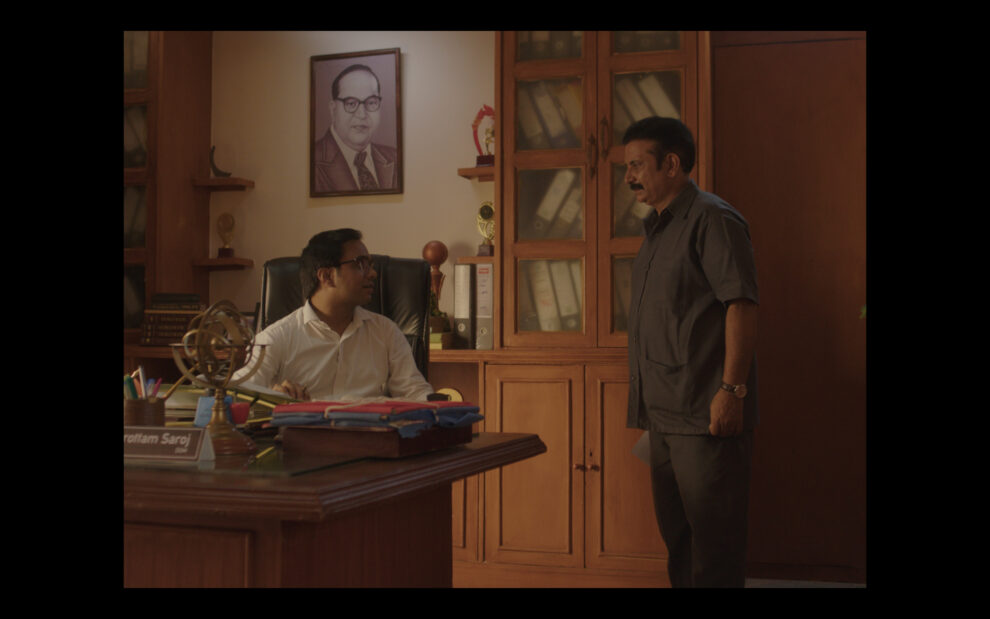From the film's description: The film is about bringing social change, and a change in the mindset of people about caste discrimination which has been an unfortunate social reality and human rights issue in India for centuries. The film is based on a short story by Prof. (Dr) Ajay Navaria.
“Yes Sir!” review is part of the Submit Your Film Initiative

Set in 4:3 frame, the movie begins with a number of people talking under a tree, when Ramnarayan Tiwari, a Brahmin (dominant/privileged community/caste in India), arrives in his SUV, bringing candy to them and even giving one to a Dalit (oppressed caste considered untouchables for centuries in India) in the vicinity, to the surprise to everyone around. Soon, however, it is revealed that the whole thing was Tiwari's dream and that the Dalit is actually his boss in the public service they both work in, Narottam Saroj. That the first order the latter gives is for Tiwari to check the overflowing toilet sets the dynamics between them quite eloquently. Their interactions continue in the same fashion, but a comment from Tiwari highlights that he is not exactly happy with the whole thing, particularly considering the caste the two belong to. The racism, however, seems to go both ways, with Narottam being harsh and dismissive towards Tiwari. Tiwari complains to a higher up, but he is chastised once more by a fellow Brahmin, with the two, however, eventually agreeing that having a Dalit in such a high position is not right.
Despite its somewhat flimsical nature, “Yes Sir!” is actually a film that aims at showing how racism and the issues with the supposedly abolished caste system are still tormenting India, even if steps forward have taken place, as the place Narottam holds eloquently highlights. The message in the end and the finale song make the comment even more evident, to a point that it becomes annoyingly spoonfed, but the rest of the 20-minutes of the short definitely compensate. The fact that people need to realize that things have changed, before the change actually becomes a widespread reality is another very interesting comment here, as much as the fact that the older generations and the conservatives are putting a hold to this change, both through their actions and their mentality. The opening of the frame towards the end seems to state that people need to open their minds, in a smarter, this time, approach to the aforementioned remarks.
Shailendra Sahu's cinematography captures the office building with realism, while the pleasant coloring overall adds to the entertainment the movie offers. The 4:3 ratio also works well, as much as the aforementioned widening, while Arnold Swamy's editing induces the film with a relatively fast pace that also adds to the entertainment it offers.
Mukesh S. Bhatt as Tiwari is excellent as the medium of all the aforementioned comments, while also managing to retain a very appealing hilarity throughout the short, which finds its apogee in the last scene.
“Yes Sir!” is a well-shot, quite smart film, that manages to eloquently present its comments while entertaining for the whole of its duration.















